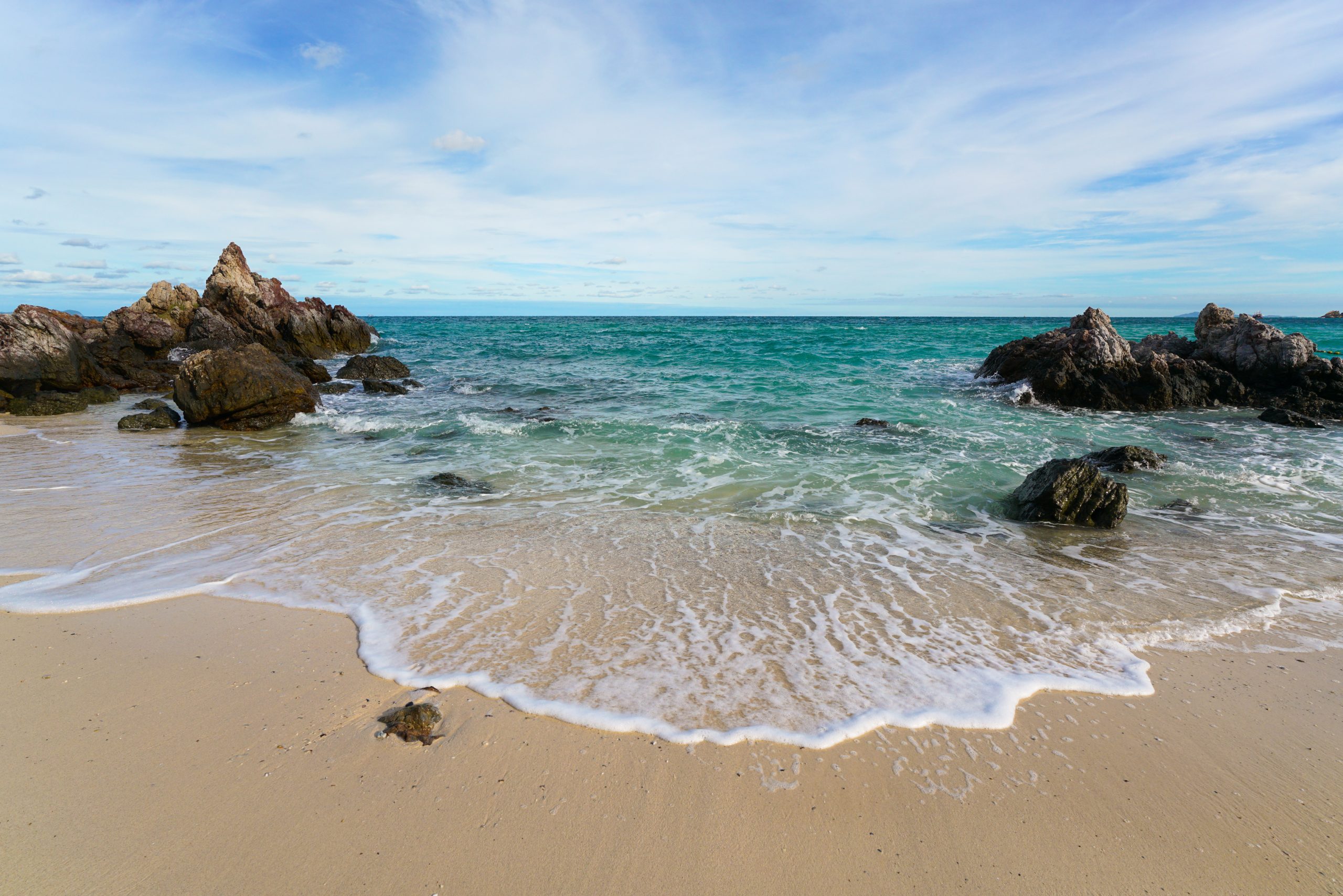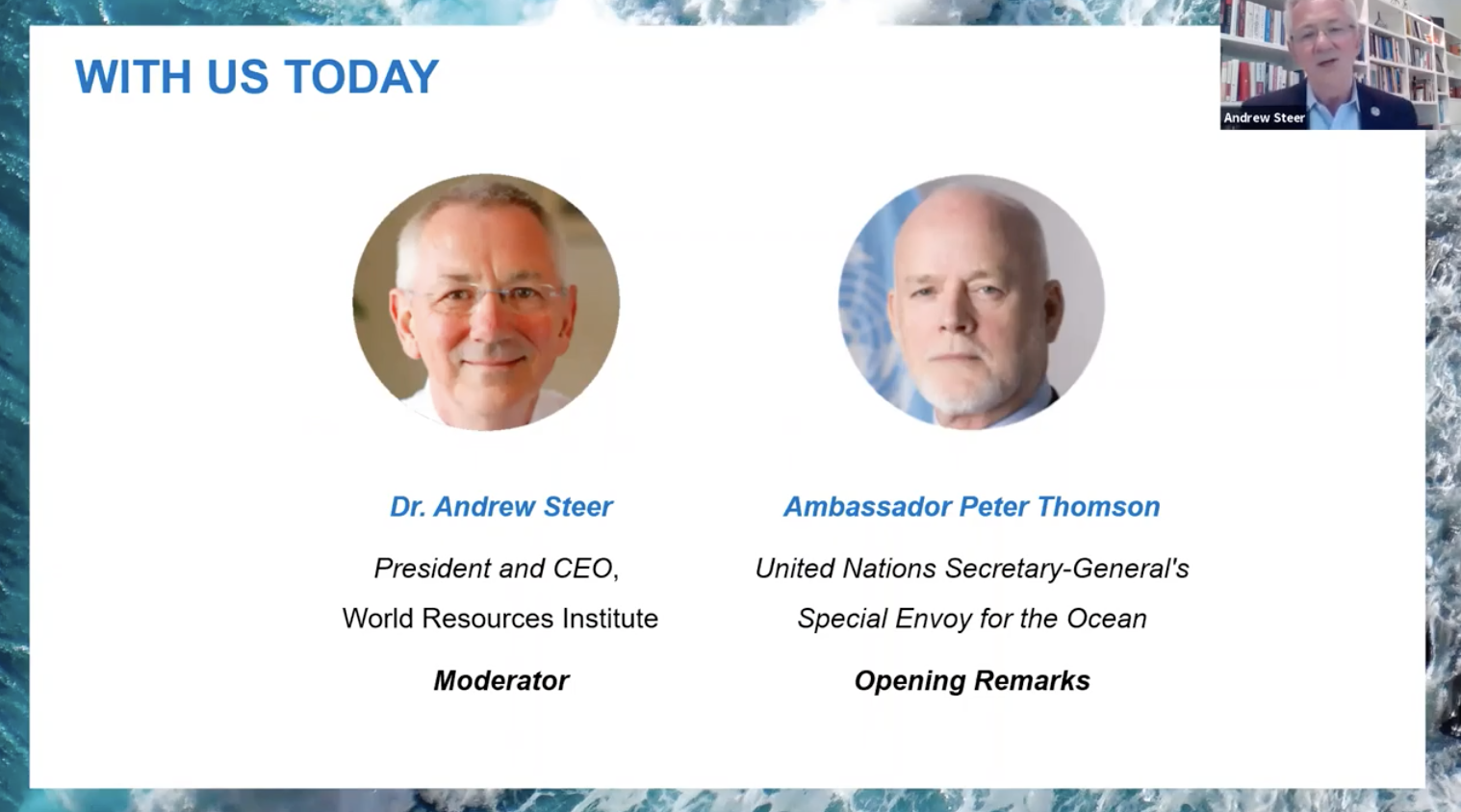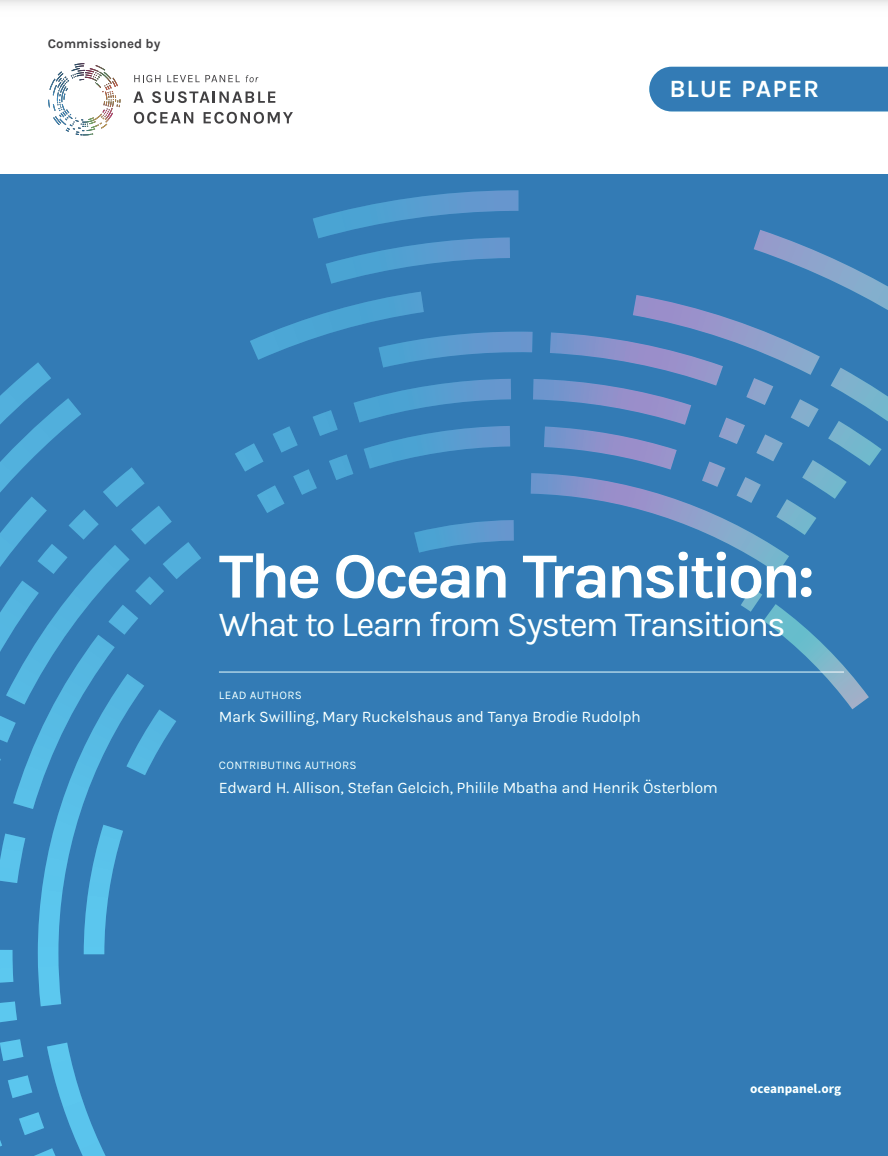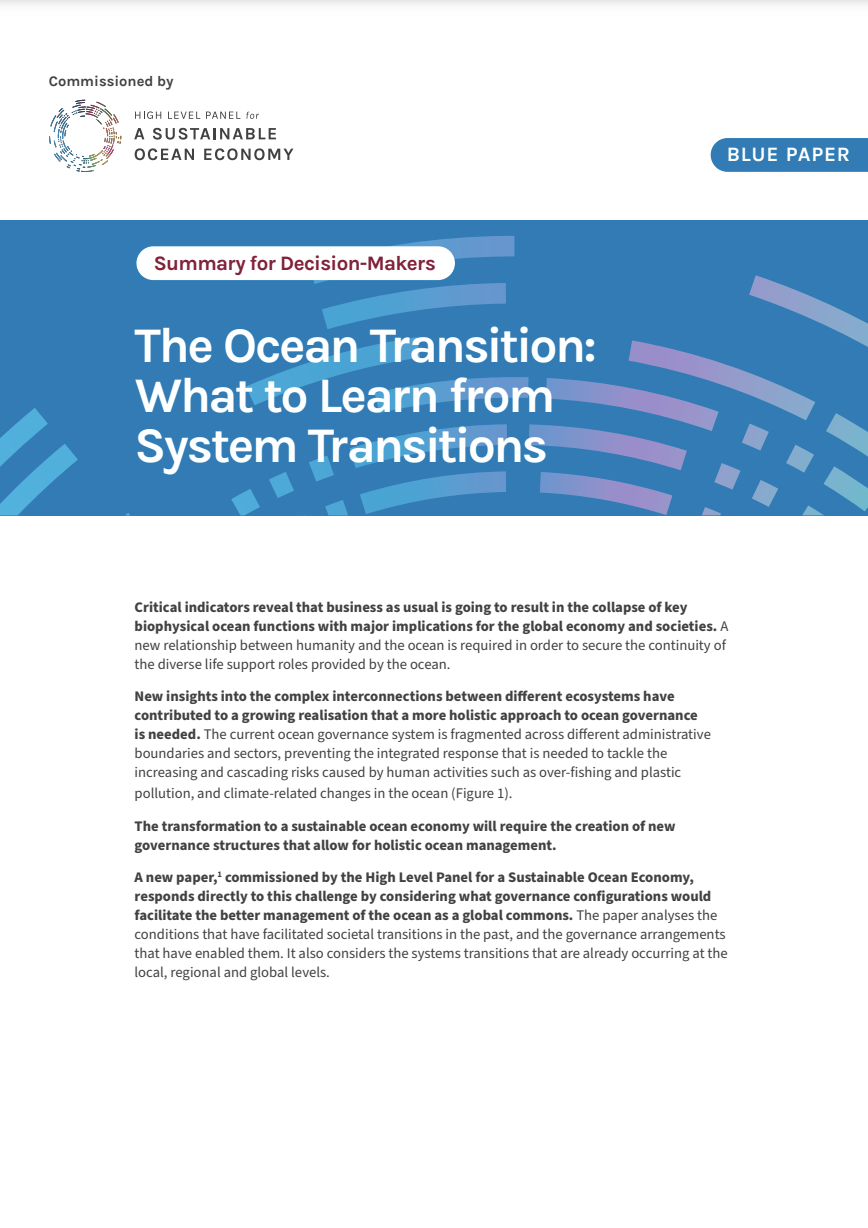In paving the way for a sustainable ocean economy, it is important to learn from comparable global transitions in the past. This paper examines past successes and failures and their key contributing factors, identifying relevant lessons learned to be applied to the ocean context. The paper considers the current dynamics of transition already under way, alternative future transition pathways and policy or other responses that can help encourage a transition to a more sustainable ocean.
‘The Ocean Transition: What to Learn from System Transitions’ launched 12 June 2020 as part of a broader webinar, Ocean Panel Perspectives: Accelerating the Transition to a Sustainable Ocean Economy’, featuring reflections from Ocean Panel members and experts on recent global ocean dialogues and activities and the road ahead for building a sustainable ocean economy.
Featured in this event were Peter Thomson, the UN Secretary-General’s Special Envoy for the Ocean, who delivered opening remarks, as well as Norway’s Special Envoy for the Ocean and Ocean Panel Sherpa Vidar Helgesen; Ocean Panel Expert Group Co-chair Jane Lubchenco; and Blue Paper author Mary Ruckelshaus, Director of the Natural Capital Project and Consulting Professor at Stanford University. The event was moderated by Andrew Steer, WRI’s President and Chief Executive Officer.
The webinar was featured in a WRI podcast ‘Seeing the Ocean as a Solution, Not a Victim‘.
An adapted version of this Blue Paper was published in Nature Communications on 17 July 2020 under the title ‘A Transition to Sustainable Ocean Governance’.
The lead authors of this paper are Mark Swilling, Mary Ruckelshaus and Tanya Brodie Rudolph. Contributing authors include Eddie H. Allison, Stefan Gelcich, Philile Mbatha and Henrik Österblom.
https://doi.org/10.69902/97961169


 Previous
Previous







